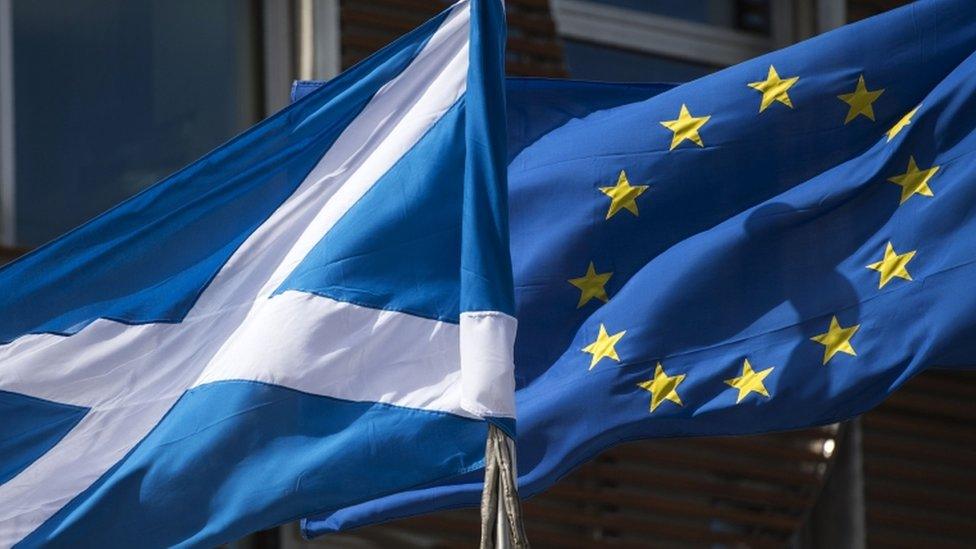Independence hangs over Holyrood Brexit debate
- Published
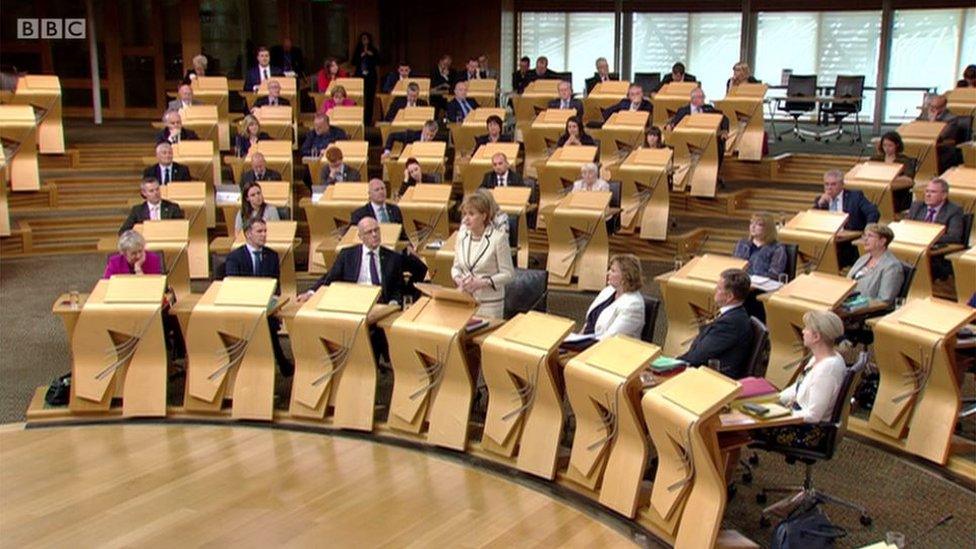
MSPs were updated on the government's plans in the wake of the UK's vote to quit the European Union
It was not, said Nicola Sturgeon, a statement she wanted to make. Her party, her government had not sought a referendum on the European Union nor did they seek the result which followed.
Nevertheless, she delivered said statement with panache and deliberative control. It was not, she implied by her demeanour, a time for fire and passion.
Indeed, the only section remotely approaching hyperbole was one disavowing any connection between today's debate at Holyrood and independence.
Ms Sturgeon departed from her prepared text to insist that she was "emphatically" not asking MSPs to endorse the prospect of a second referendum on Scotland's relationship with the UK.
Why not? See previous comments on this site. One, she is genuinely seeking alternative ideas for maintaining Scotland's links with the EU; appointing an expert panel, led by the estimable Anton Muscatelli, to assist in that task.
Two, if there is to be an independence referendum, she will need time to prepare. As would Scotland.
Uncertain times
It remains feasible - "highly likely", to quote the FM - that such a plebiscite may emerge because the search for alternatives may prove futile. But we are not there yet. That was not, said Ms Sturgeon, the starting point of today's initiative at Holyrood.
What might be the timing? Remember that we are in deeply uncertain times. Nobody has a fixed idea as to what might emerge. We are all constantly pressing the refresh button on the BBC's excellent Online pages to find out who is the latest to resign.
But the chat at Holyrood - inevitably speculative - mostly seems to centre upon a possible indyref2 in spring 2018. I stress that is very, very far from fixed. Emphatically not, to quote the FM. It may happen in 2017 or not at all.
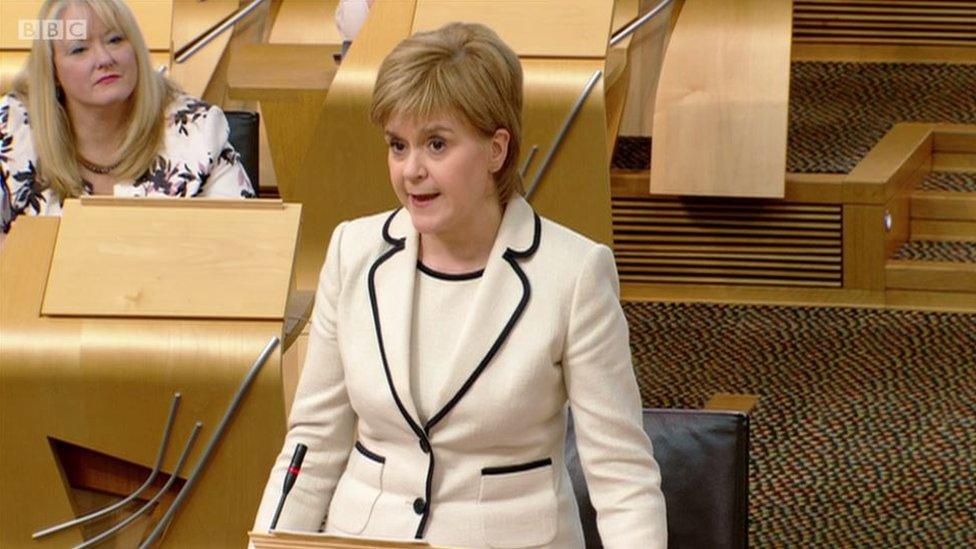
Ms Sturgeon has said a second independence referendum is "highly likely"
The 2018 timetable works like this. It is expected that the UK Government will initiate the Section 50 process of departure from the EU in autumn this year.
There then begins two years of negotiations about the terms of departure in which the UK will seek to obtain the best possible trade deal - consistent, presumably, with the Leavers' key demand that there must be substantial constraints placed upon freedom of movement to these islands.
That takes us to Autumn 2018 - unless all 27 remaining EU member states agree to an extension. At that point, either a deal is struck or an extension is agreed or the UK departs without a deal, resorting to WTO rules.
If Scotland is to be permitted to sidestep that departure, there would need to be a referendum within the two year period. There would need to be a clear vote in favour of independence in time to permit even the prospect of Scotland retaining / recreating EU membership. I stress, even the prospect.
Which points to Spring 2018 at the latest. Earlier? Possible, eminently possible. But the feeling is perhaps that it would take some time to alter and muster the renewed case for independence, to draft a revised White Paper (with new answers, presumably, on currency and other issues) and to prepare for running the new poll.
State of readiness
To give herself options, Nicola Sturgeon confirmed again today that she had initiated plans for the legislation which would be necessary to order a referendum. This does not yet include the Section 30 transfer of power from Westminster which was needed in 2014 to legitimise the plebiscite, on the grounds that the UK constitution is an issue reserved to the UK.
The UK government is not prepared yet to issue the request to quit the EU under Section 50 of the Lisbon Treaty. Presumably its state of readiness to cope with Section 30 of the Scotland Act 1998 is even less pronounced.
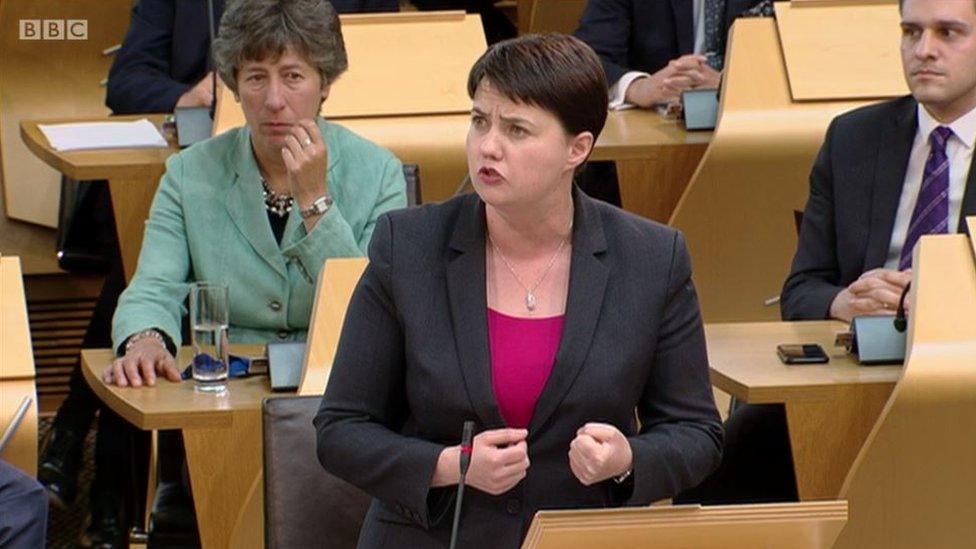
Ruth Davidson said Scotland could not "dampen the shockwaves" of one referendum by pursuing another one
But back to our debate. If Ms Sturgeon was deliberately under-stated, there was notable passion from other contributors.
Ruth Davidson, for the Conservatives, heard the FM's emphasis that the debate was not about independence - but queried the underlying trend. She said Scotland would not "dampen the shock waves" of Brexit by pursuing indyref2.
Further, Ms Davidson challenged the notion that Ms Sturgeon should seek a deal in her own right, through direct negotiations with European institutions. She argued for a collaborative UK approach, with Scotland playing a full part.
By contrast, Labour, the Liberal Democrats and the Greens supported Ms Sturgeon in her request for a mandate to pursue talks.
Labour's Kezia Dugdale was only too painfully aware that some areas, customarily regarded as Labour supporting, had voted Leave. That fact has provoked a political conflagration within her own party at Westminster - although, to be frank, those embers were already well alight.
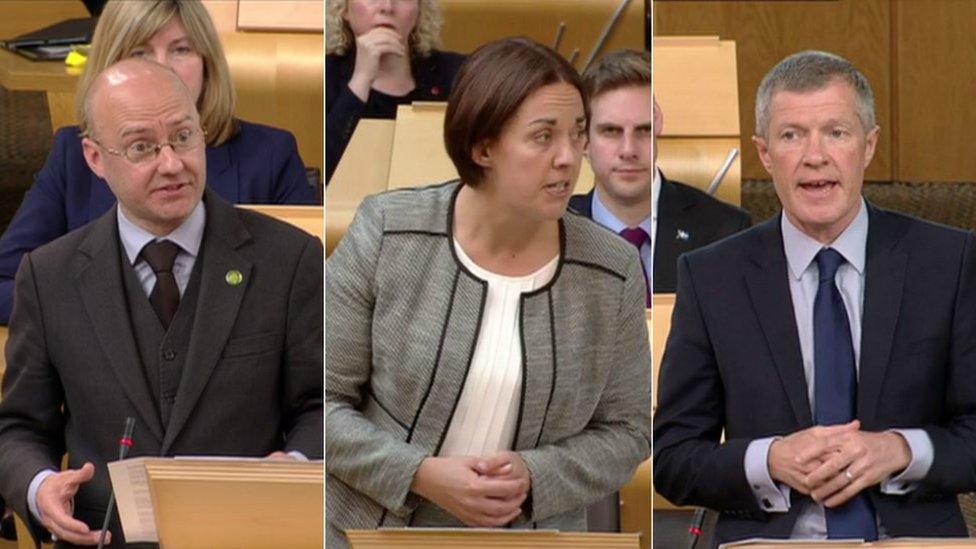
Each of Holyrood's party leaders had a chance to speak to the referendum result in the debate
Given that sensitivity, Ms Dugdale attempted a balancing act. She said the leaders of the Leave campaign had featured "some of the worst dog-whistle racism and xenophobia" she had ever witnessed.
Yet she argued that it was vital for politicians in Scotland and England to understand why economically deprived citizens in troubled estates had chosen Leave, faute de mieux.
Patrick Harvie spoke fluently in the chamber, as is his wont. He had already made his pro-European credentials clear by addressing a demonstration outside Parliament ahead of the debate.
Willie Rennie of the Liberal Democrats turned the attack upon the Tories. It was not the rich who would would suffer from Brexit, he said, going on to list a series of Conservatives. It was the working and workless poor.
Are we any further forward? Not much, to be frank. But then this is a huge and unprecedented challenge. It will take time.
- Published28 June 2016
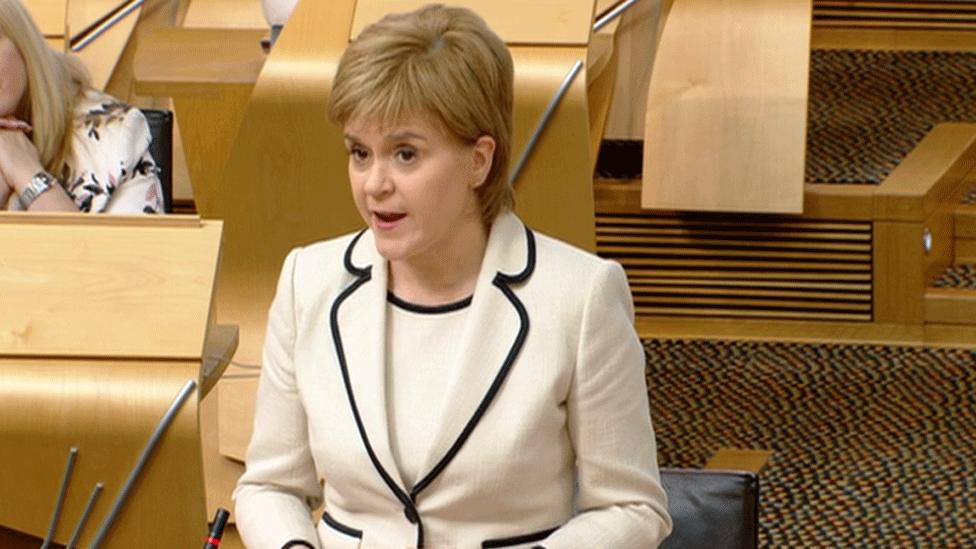
- Published27 June 2016
